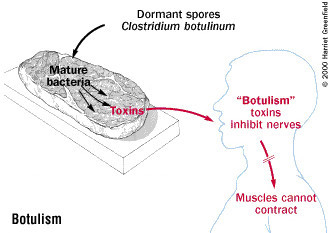
What are somatic workouts?

How to curb your stress eating

How to spot Parkinson’s disease symptoms

8 simple ways to reduce ultra-processed foods in your diet

Heart failure symptoms in women: How they’re different

GERD diet: Foods to avoid to reduce acid reflux

Strong is the new skinny

Everyday habits that sneakily weaken your bones

Don’t wait to get help for back pain

Correcting how you walk may ease osteoarthritis knee pain
Digestive Health Archive
Articles
Inflammatory bowel disease's gender bias
Inflammatory bowel disease (IBD) affects roughly equal numbers of women and men. But the condition imposes a disproportionate burden on women—shaping symptoms, affecting reproductive decisions, and increasing risks of ominous downstream health effects. IBD can ramp up symptoms during menstruation, cause painful sex, and raise risks for iron-deficiency anemia and osteoporosis. Plus, some drugs used for IBD may raise the risk for cervical cancer.
Digestive health changes: When to seek medical care
People with new gastrointestinal problems should consider if symptoms indicate a chronic or serious condition. If symptoms don't include bloody stools, fever, loss of bowel control, severe pain, or severe dehydration, doctors advise trying home remedies first. For example, heartburn might respond to over-the-counter medications and lifestyle changes (such as avoiding certain foods, eating smaller meals, and staying upright after eating), and then seeking help if symptoms don't resolve within a few weeks.
Can probiotics help calm inflammatory bowel disease?
Approximately three million Americans have an inflammatory bowel disease. Current therapies for IBD suppress the immune system to reduce inflammation, but some preliminary studies have investigated whether probiotics are beneficial for people with IBD.
Celiac disease: Exploring four myths
While medical knowledge on celiac disease has evolved over the past few decades, there are still aspects that remain poorly understood. Perhaps not surprisingly, misconceptions are widespread among the general public.
Why do I have trouble swallowing?
Common causes of persistent or recurrent swallowing difficulty include medication side effects, an inflamed esophagus, an enlarged thyroid, among others. A doctor can conduct several tests to help identify the problem and offer appropriate treatment.
Can't shake that cough?
The average cough, typically due to a cold or other respiratory virus, lasts three weeks or less. A lingering or chronic cough lasts eight weeks or longer. Most causes of chronic cough aren't serious, such as bronchitis, seasonal allergies, or medication side effects. People should see a doctor if over-the-counter treatments haven't worked or if they experience signs such as breathlessness, wheezing, chest pain, blood in the sputum, weight loss, or fatigue. Before an appointment, people should track their cough and note its patterns to offer clues for diagnosis.

What are somatic workouts?

How to curb your stress eating

How to spot Parkinson’s disease symptoms

8 simple ways to reduce ultra-processed foods in your diet

Heart failure symptoms in women: How they’re different

GERD diet: Foods to avoid to reduce acid reflux

Strong is the new skinny

Everyday habits that sneakily weaken your bones

Don’t wait to get help for back pain

Correcting how you walk may ease osteoarthritis knee pain
Free Healthbeat Signup
Get the latest in health news delivered to your inbox!
Sign Up











